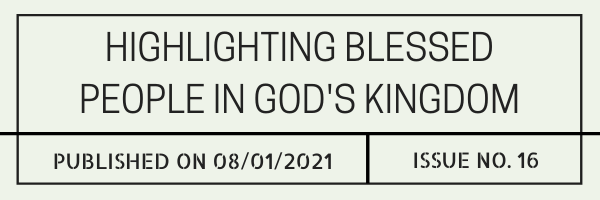
“The Beatitudes According To Luke“
[By B.H.]
When people discuss The Beatitudes, Matthew’s account is usually the referenced scripture. Nine statements describe that the people of God are blessed (happy) if they have characteristics that the world might perceive as negative, but to God are positive. For example, showing mercy can be perceived as being weak, but the reality is that if you show mercy, you will receive mercy. In our vernacular we like to say, “what goes around comes around” or to be more biblical “you reap what you sow.”
The Gospel writers had their unique perspectives, audiences, and recollections of the events and sayings of Jesus, and The Beatitudes are one such example. When it comes to eye-witness testimony, a slight variation of accounts is expected, and collectively the truth is made evident.
The Gospel according to Luke records four distinct “blessed” statements in Chapter 6 and then, instead of recording five other statements in sequence as seen in Matthew 5, the author elaborates with the inverse of the four characteristics (It is worth noting that a couple of the individual “blessed” statements in Matthew’s account are conceptually similar and could be considered together, see Matthew 5:10-11 and Luke 6:22-23).
Luke 6 records the following: “(v20) Blessed are you who are poor for yours is the kingdom of God. (v21) Blessed are you who hunger now, for you shall be satisfied. Blessed are you who weep now, for you shall laugh. (v22-23) Blessed are you when men hate you…in the same way their fathers treated the prophets” (NASB).
Then, the coin is flipped.
“(v24) Woe to you who are rich, for you are receiving your comfort in full. (v25) Woe to you who are well fed now, for you shall be hungry. Woe to you who laugh now, for you shall mourn and weep. (v26) Woe to you when all men speak well of you, for in the same way their fathers treated the false prophets” (NASB).
Why does Luke focus on these four Beatitudes and elaborate on the flip-side of the statements? The Sermon on the Mount was forward-thinking. The Beatitudes describe those who will inherit the kingdom of God. Inheritances are naturally forward-thinking (future) rewards, given at the appropriate time once certain events have occurred, namely the death of a relative. Luke emphasizes two important aspects of these specific forward-thinking teachings of Jesus.
The first emphasis is the very tangible analogies to which people easily relate. People can quickly understand the very human concepts of being poor, hungry, sad, and insulted. Matthew, by way of contrast, includes the statements about the “merciful,” “pure in heart,” “peacemakers,” and “gentle,” which are arguably more subtle and complex characteristics. The four characteristics mentioned in Luke have a very physical (earthly) association.
The second emphasis is now versus later. Notice how the word “now” is used in the central two statements of both the “blessed” and the “woe” sequences. The present tense is also used when Jesus says, “Woe to you who ARE rich, for you are RECEIVING your comfort in full.” He is saying NOW. You are rich now, full now, laughing now…but what about later? What will those temporary, selfish, distracting, unkind attributes gain you in the future?
Both of these emphasis points contribute to a singular question: What will you inherit? The way you are now, impacts what you will receive in the future. Someone died and either you will receive an inheritance or you won’t. Jesus died to provide an inheritance, one that is not physical, but spiritual. The question is, what kind of person are you going to be in the present? Only the humble, giving, repentant, and obedient will reap the future reward. Woe to those who are shortsighted because the present only lasts so long.
If you want an inheritance that matters, how can you be poor, hungry, sad, and also joyful when insulted? Thankfully, Luke elaborates on that as well in the remainder of Chapter 6. A thorough read of this second account of Jesus’ lesson on living helps us see the truth even clearer.

Keep up the good work! The world needs Jesus more than ever!